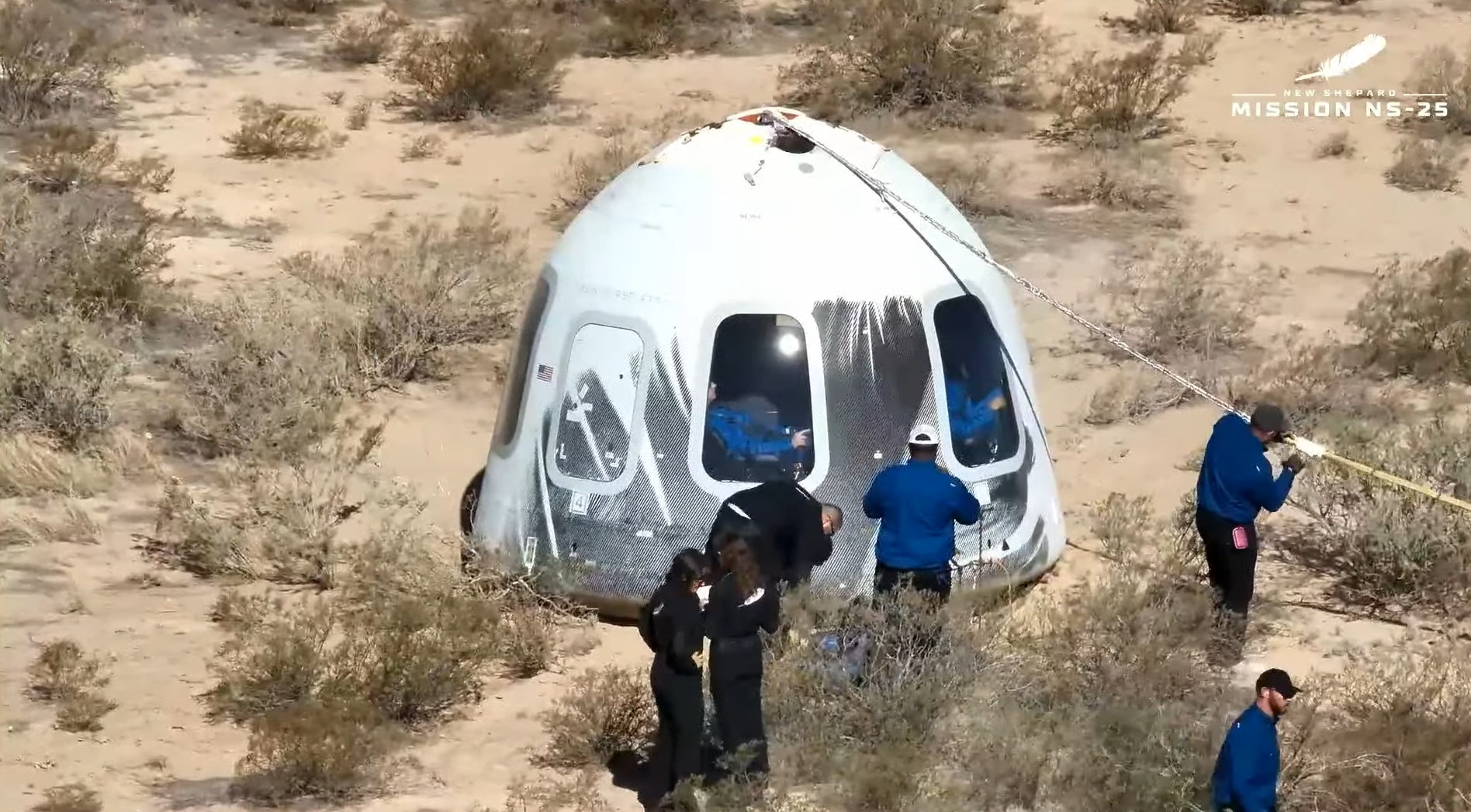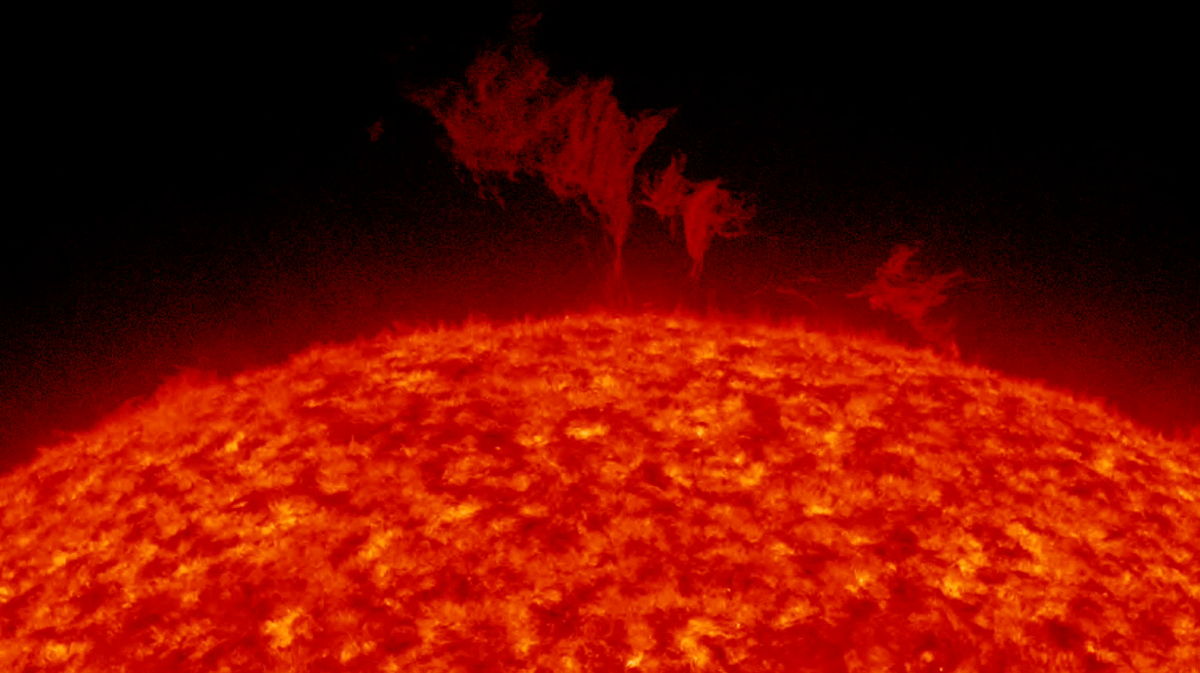Ed Dwight got to live out his long-delayed spaceflight dream over the weekend — and set a record in the process.
In 1961, President John F. Kennedy selected Dwight to train at the U.S. Air Force's Aerospace Research Pilot School. ARPS was widely regarded as a conduit into NASA's astronaut corps at the time, so the pick made Dwight the United States' first Black astronaut candidate.
He never moved beyond "candidate" status, however: Though Dwight completed his ARPS training and the Air Force recommended him for the astronaut corps, NASA didn't choose him.
So Dwight never made it to the final frontier — until yesterday (May 19), when he flew to suborbital space and back with Blue Origin, on the company's NS-25 mission.
"I thought I didn't need this in my life, but I lied: I really did need it," Dwight said shortly after landing yesterday, in an interview that Blue Origin aired as part of its launch webcast.
"It was the first real deal that I got involved in that I wasn't successful at," he added, referring to his non-selection by NASA. "I wish I had gotten it then, but it's great. That's all I can say."
Related: Meet the crew of Blue Origin's NS-25 suborbital mission
Get the Space.com Newsletter
Breaking space news, the latest updates on rocket launches, skywatching events and more!
The 90-year-old Dwight also became the oldest person ever to reach space, besting William Shatner by about a month. The "Star Trek" captain was also 90 when he flew with Blue Origin back in October 2021.
Blue Origin operates a reusable rocket-capsule combo called New Shepard, which carries people and payloads on brief jaunts to suborbital space from the company's West Texas launch site.
Yesterday's mission was called NS-25, because it was the 25th New Shepard mission to date. It was the seventh crewed flight of the vehicle overall, and the first since August 2022. In September 2022, New Shepard suffered a failure during an uncrewed research flight, grounding the vehicle for about 15 months while Blue Origin investigated and then fixed the issue (which it determined to be a thermo-structural failure in the nozzle of the first-stage rocket's single engine).
NS-25 carried six passengers, including Dwight. The other five were venture capitalist Mason Angel; French craft-brewing magnate Sylvain Chiron; entrepreneur Kenneth L. Hess; retired accountant Carol Schaller; and pilot and aviator Gopi Thotakura.
The mission lifted off at 10:37 a.m. EDT (1437 GMT) and reached a maximum altitude of 65.7 miles (105 kilometers), according to Blue Origin. The six passengers experienced a few minutes of weightlessness and got to see Earth against the blackness of space before touching down at 10:47 a.m. EDT (1447 GMT).
Dwight was particularly moved by the view.
"The view — even if I couldn't see, I could see it," he said with a laugh. "Absolutely fantastic. This was a life-changing experience. Everybody needs to do this."

Dwight's seat on NS-25 was sponsored by the nonprofit Space for Humanity, with additional support from the Jaison and Jamie Robinson Foundation, according to Blue Origin.
His five crewmates presumably paid for their tickets. We don't know how much, however; Blue Origin has not disclosed its ticket prices. For perspective, the company's chief competitor in the suborbital tourism business, Virgin Galactic, currently charges $450,000 for a seat on its VSS Unity spaceliner.
And for some more perspective, of the historical kind: A Black American wasn't picked for a space program until June 1967, when the Air Force selected Robert Lawrence to train for its Manned Orbiting Laboratory project. Tragically, however, Lawrence died in a jet crash in December of that same year. (The MOL, incidentally, was never built.)
It took another 16 years for a Black American to actually reach space. NASA astronaut Guion Bluford notched that milestone on the STS-8 mission of the space shuttle Challenger in August 1983.
Join our Space Forums to keep talking space on the latest missions, night sky and more! And if you have a news tip, correction or comment, let us know at: community@space.com.

Michael Wall is a Senior Space Writer with Space.com and joined the team in 2010. He primarily covers exoplanets, spaceflight and military space, but has been known to dabble in the space art beat. His book about the search for alien life, "Out There," was published on Nov. 13, 2018. Before becoming a science writer, Michael worked as a herpetologist and wildlife biologist. He has a Ph.D. in evolutionary biology from the University of Sydney, Australia, a bachelor's degree from the University of Arizona, and a graduate certificate in science writing from the University of California, Santa Cruz. To find out what his latest project is, you can follow Michael on Twitter.









